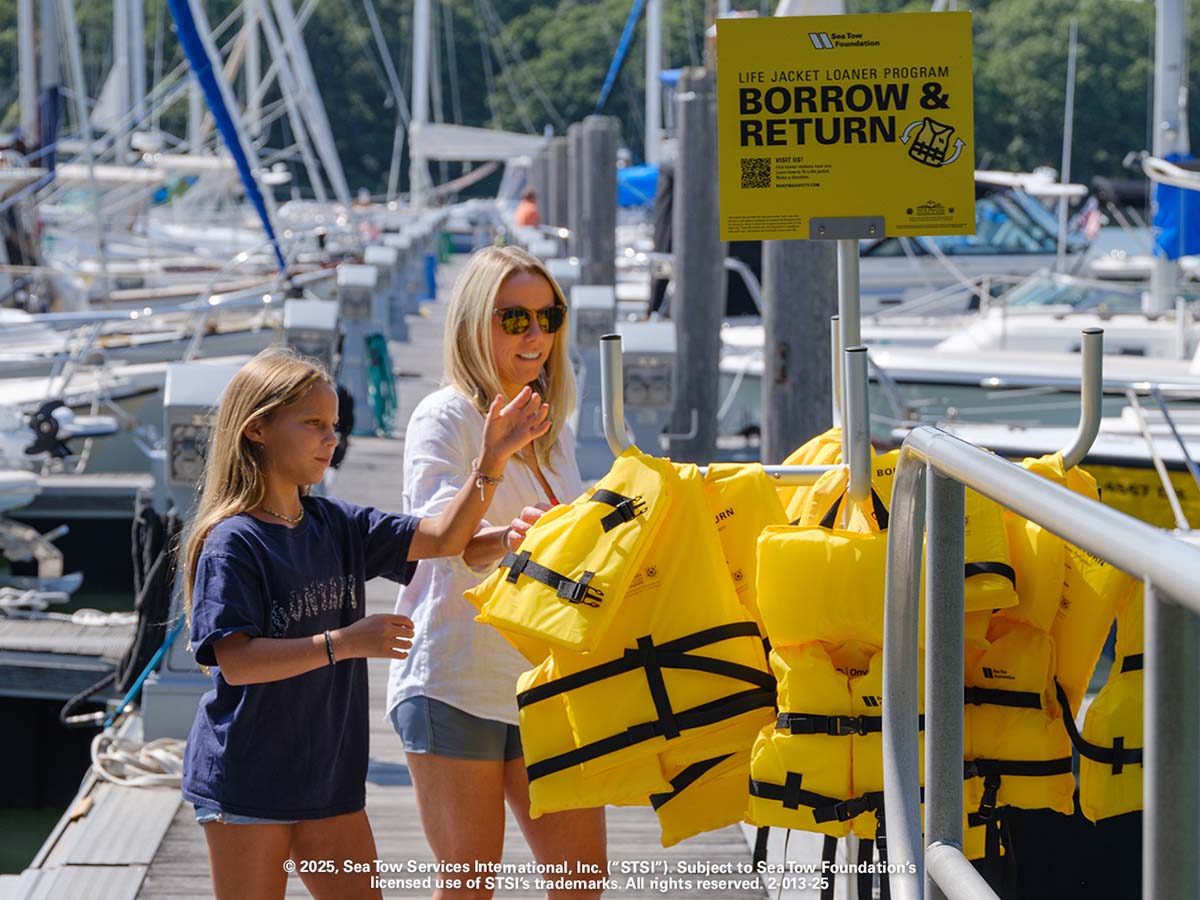
Aligning Mission and Forces Across the Industry
Published on October 24, 2025The Sea Tow Foundation™ knows what it means to be a recreational boater. The non-profit organization offers education, tools and resources designed to help boaters stay safe on the water. With one goal being to eliminate preventable recreational boating accidents, it promotes safety as a shared responsibility, empowering every boater to make safe and responsible choices. But, generally speaking, not everyone wants to talk about it.
Bridging the Gap
The Sea Tow Foundation recently completed a grant project called “Bridging the Boating Safety Gap Between the Non-Profit and For-Profit Boating Industry,” funded through the Sport Fish Restoration & Boating Trust Fund, administered by the U.S. Coast Guard.
The goal behind the project was to uncover why traditional safety messages often fail to resonate in the for-profit sector and how a new approach could transform both safety initiatives and business success.
The Challenge
Across the marine industry, many non-profit organizations offer resources and run campaigns and outreach programs aimed at reducing high-risk behaviors and promoting safer boating practices. Yet, despite their dedication, most face two consistent challenges: limited funding and a limited audience. As a result, these organizations often struggle to connect with the broader boating public.
Historically, many of the for-profit businesses such as boat manufacturers, dealers and marine accessory brands, have long viewed boating safety and related initiatives as “negative.” A select few have integrated safety into their marketing initiatives, but the prevailing concern remains that emphasizing safety might diminish the fun associated with boating or even impact sales.
This new research from the Sea Tow Foundation addresses the perception, suggesting that safety may, in fact, represent one of the industry’s most overlooked growth opportunities.
The Project
Led by Empire Insights, a contracted market research consultant, the project sought to better understand how for-profit companies in the boating industry, specifically boat manufacturers, dealers and accessory brands, perceive the idea of promoting boating safety directly to consumers, as well as the barriers that limit broader engagement.
To collect data, the Empire Insights team conducted multiple one-on-one interviews with industry executives in marketing and sales roles who volunteered their time to be part of the research. The discussion framework of the interviews was refined with the help of an industry taskforce that was created by the Sea Tow Foundation for this project and driven by pre-existing materials that highlighted successful safety efforts within the for-profit sector.
The Findings
The interviews revealed several key takeaways, change to some that have the potential to redefine how the industry approaches boating safety.
1. A need for unified action.
The marine industry lacks coordination between non-profit organizations, for-profit companies and government agencies to effectively promote boating safety to recreational boaters. Safety is a shared industry responsibility and needs to be supported in a unified and collaborative way.
2. Desire for clearer, standardized laws.
With current regulations varying widely across federal, state and local levels, it’s difficult to deliver consistent safety messaging. A standardized framework could improve awareness, reduce confusion and enhance compliance among boaters.
3. Perception of safety messaging as a marketing challenge.
Many for-profit companies still perceive boating safety messaging as a “negative” that could undermine the fun, aspirational image of boating or hinder sales. However, a recurring theme emerged: if companies had data-driven evidence showing that safety promotion improves customer loyalty, strengthens market growth and reduces accidents and fatalities, they would be far more inclined to integrate safety initiatives into their brand strategies.
4. Call for an industry-wide bridge.
A collaboration between the non-profit and for-profit sectors of the marine industry would ensure more consistent messaging, broader education and a unified voice in promoting safe and responsible boating, aligning with the original hypothesis of the project.
Bottom Line
Ultimately, the project reinforces a central truth: when safety becomes part of the boating experience, not segmented from it, everyone benefits. While there is work to do, there is ample opportunity ahead within the industry.
A full comprehensive report detailing all the project’s findings and supporting data, along with recommendations for next steps, will be published in early 2026 on the Sea Tow Foundation website boatingsafety.com.
Gail R. Kulp is the executive director of the Sea Tow Foundation, a 501(c)(3) nonprofit organization started in 2007 by Captain Joe Frohnhoefer, founder of Sea Tow Services International. Through its flagship programs, which include the Life Jacket Loaner Program, Sober Skipper Campaign, Flare Education, and the National Boating Safety Awards, the Sea Tow Foundation strives towards its vision of a world where boaters are safe and responsible. To learn more, visit boatingsafety.com.
| Categories | |
| Tags |





